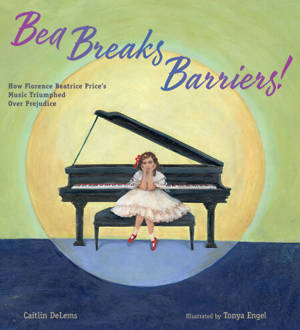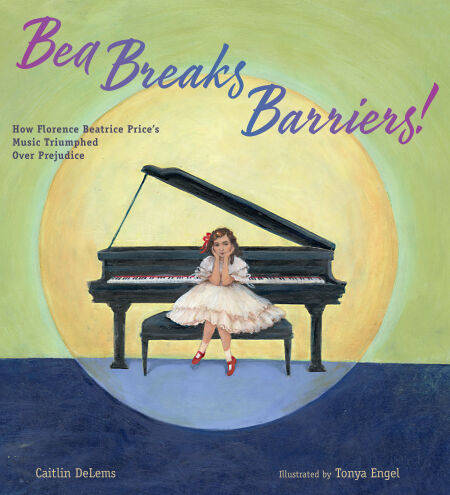
- Afhalen na 1 uur in een winkel met voorraad
- Gratis thuislevering in België vanaf € 30
- Ruim aanbod met 7 miljoen producten
- Afhalen na 1 uur in een winkel met voorraad
- Gratis thuislevering in België vanaf € 30
- Ruim aanbod met 7 miljoen producten
Zoeken
Bea Breaks Barriers! E-BOOK
How Florence Beatrice Price’s Music Triumphed Over Prejudice
Caitlin DeLems
E-book | Engels
€ 11,82
+ 11 punten
Uitvoering
Omschrijving
2025 NCSS-CBC Notable Social Studies Book Winner
Here is the little-known story of Florence Beatrice “Bea” Price, who faced many obstacles, including systemic racism and sexism, as she pushed forward to become one of the greatest Black classical composers.
Florence Beatrice “Bea” Price loved music from a young age. When she wasn’t practicing on the piano, she tapped her feet, drummed her fingers, and whistled. Growing up in Little Rock, Arkansas, she was surrounded by Negro spirituals, classical music, Juba dance rhythms, and folk songs and even had the chance to play piano with John William “Blind” Boone. But as a young Black girl living in the South, Bea wasn’t offered the same chances as white children. Not allowed to perform in public, Bea’s first recital was in her living room. But Bea was not deterred. She studied hard, rose to the top of her class, and was accepted to the New England Conservatory of Music—one of two Black students—and majored in both music and composition. Bea never forgot her roots and wove all kinds of musical genres into her musical compositions and spirituals.
Here is the little-known story of Florence Beatrice “Bea” Price, who faced many obstacles, including systemic racism and sexism, as she pushed forward to become one of the greatest Black classical composers.
Florence Beatrice “Bea” Price loved music from a young age. When she wasn’t practicing on the piano, she tapped her feet, drummed her fingers, and whistled. Growing up in Little Rock, Arkansas, she was surrounded by Negro spirituals, classical music, Juba dance rhythms, and folk songs and even had the chance to play piano with John William “Blind” Boone. But as a young Black girl living in the South, Bea wasn’t offered the same chances as white children. Not allowed to perform in public, Bea’s first recital was in her living room. But Bea was not deterred. She studied hard, rose to the top of her class, and was accepted to the New England Conservatory of Music—one of two Black students—and majored in both music and composition. Bea never forgot her roots and wove all kinds of musical genres into her musical compositions and spirituals.
Specificaties
Betrokkenen
- Auteur(s):
- Illustrator(s):
- Uitgeverij:
Inhoud
- Aantal bladzijden:
- 48
- Taal:
- Engels
Eigenschappen
- Productcode (EAN):
- 9781662680656
- Verschijningsdatum:
- 28/10/2024
- Uitvoering:
- E-book
- Beveiligd met:
- Adobe DRM
- Formaat:
- ePub 3 Fixed Layout

Alleen bij Standaard Boekhandel
+ 11 punten op je klantenkaart van Standaard Boekhandel
Beoordelingen
We publiceren alleen reviews die voldoen aan de voorwaarden voor reviews. Bekijk onze voorwaarden voor reviews.








